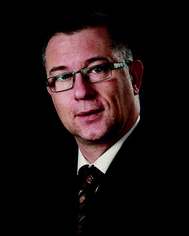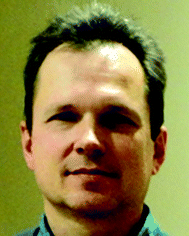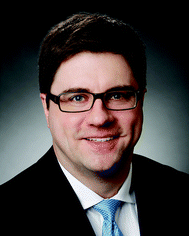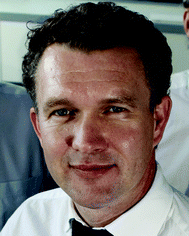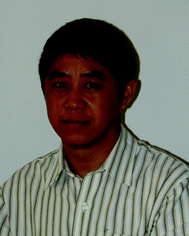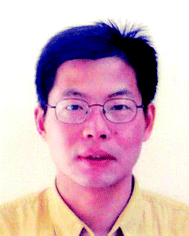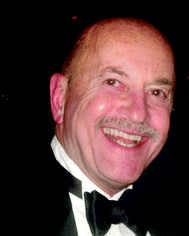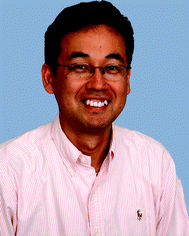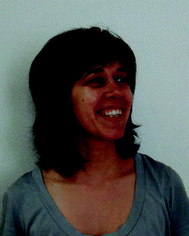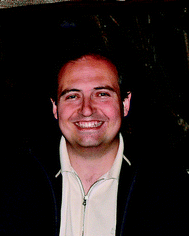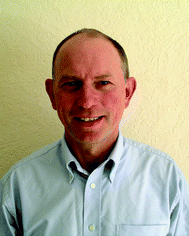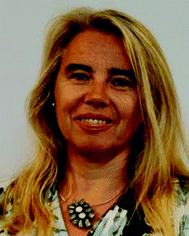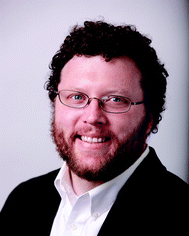DOI: 10.1039/C3JA90070C
(Editorial)
J. Anal. At. Spectrom., 2014, 29, 12-16
JAAS Editorial Board profiles
Frank Vanhaecke
Frank Vanhaecke (1966) obtained his PhD degree in 1992 from Ghent University, Belgium. He continued carrying out scientific research as a post-doctoral fellow at the same university and also enjoyed a post-doctoral stay at the Johannes Gutenberg University of Mainz, Germany. Since 1998, Frank has been Professor in Analytical Chemistry at Ghent University. As an analytical chemist, Frank has a passion for the determination, speciation and isotopic analysis of (trace) elements via ICP-mass spectrometry (ICP-MS). He leads the ‘Atomic & Mass Spectrometry A&MS’ research group (http://www.analchem.ugent.be/A%26MS) that studies fundamentally oriented aspects of the technique and develops methods for solving challenging scientific problems in an interdisciplinary context. Nowadays, specific topics of research include the direct analysis of solid materials by means of ICP-MS using laser ablation (LA) for sample introduction, the development of speciation strategies based on HPLC-ICP-MS for ADME (absorption, distribution, metabolism and excretion) studies in cooperation with the pharmaceutical industry and high-precision isotopic analysis using multi-collector ICP-MS. Frank is (co-)author of some 250 journal papers, more than 10 book chapters and has edited a book (together with Patrick Degryse), entitled “Isotopic analysis—fundamentals and applications using ICP-MS”. In 2011 he received a “European Award for Plasma Spectrochemistry” for his contributions to this research field and he was nominated “Fellow of the Society for Applied Spectroscopy—SAS” in 2013. Frank is a fellow of the Royal Society of Chemistry.Dmitry Bandura
Dmitry R. Bandura received his M.Sc. in engineering physics (1985) and PhD in technical sciences (1992) at the Moscow Engineering Physics Institute. Most of his career has been devoted to developing mass-spectrometry based technologies and instrumentation. He is currently a Vice-President, R&D, at DVS Sciences Inc., the company he co-founded with S. D. Tanner and V. I. Baranov in 2004. He leads the company wide effort to investigate the fundamental science of mass cytometry and translate that into the company's innovative products. Before the formation of DVS, he was a senior research scientist at MDS Sciex, where he advanced the understanding and development of new ICP-MS instrumentation (1998–2005), and a research physicist at GBC Scientific Equipment, where he was fundamental to the development of the commercial ICP-TOF-MS. His special research interests include plasma physics, ion optics, gas-phase ion-molecule chemistry, elemental tagging of biomolecules, single cell bio-analytical assays.Carsten Engelhard
Carsten Engelhard was born in Germany, in 1977. He received his PhD (“Dr. rer. nat.”) in Analytical Chemistry from the University of Münster, Germany, in 2007, and was a postdoctoral associate at Indiana University, USA, with G. M. Hieftje from 2008–2010. In 2010, Carsten started his independent research (“habilitation”) at the University of Münster, Germany, with U. Karst. Since 2013 he is an Assistant Professor at the University of Siegen, Germany. Research interests include fundamentals/applications of plasma-based techniques, development of instrumentation, nanomaterials characterization, and ambient desorption/ionization. He has received awards including the Analytical Chemistry Division Award of the German Chemical Society and the “Adolf-Martens-Award” from BAM (Federal Institute for Materials Research and Testing) and Adolf-Martens Fonds, Germany.Hywel Evans
E. Hywel Evans studied for his BSc in Chemistry with Applied Biology at the University of Plymouth where he graduated with 1st class honours in 1986, followed by a PhD in Analytical Chemistry under the supervision of L. Ebdon, which he gained in 1989. After this he went to work for J. Caruso as a postdoctoral research fellow at the University of Cincinnati in the USA where he worked on the development and application of novel plasma ion sources for mass spectrometry. He returned to Plymouth in 1992, and is now Head of the Centre for Chemical Sciences and Reader in Analytical Chemistry in the School of Geography, Earth and Environmental Sciences. His research interests include elemental speciation at ultra-trace levels, applications and fundamental studies of atomic mass spectrometry and development of novel plasma sources for atomic and molecular mass spectrometry. He is the author or co-author of over 60 publications, 8 books, and numerous conference presentations. He was awarded the Hilger Spectroscopy Prize in 1994 and the SAC Silver Medal in 2000, by the Royal Society of Chemistry.Shan Gao
Shan Gao is a Full Professor for Geochemistry at China University of Geosciences, Wuhan, and Adjunct Professor for Geochemistry at Northwest University (Xi'an). He received his PhD from China University of Geosciences in 1989. His current interests are: laser ablation ICP-MS and its applications to in situ elemental and isotopic analysis of minerals, chemical composition of the continental crust, and chemical exchange between the crust and the mantle. He is author and co-author of approximately 90 original papers in international journals.Wei Hang
Wei Hang studied Instrumentation Engineering as an undergraduate at Zhejiang University, followed by a PhD in Analytical Chemistry at Xiamen University. He was a postdoctoral research associate in Analytical Chemistry at the University of Florida and Los Alamos National Laboratory, and became a technical staff member at Los Alamos National Laboratory in 1999. He joined the Chemistry Department at Xiamen University as a Professor in 2005. His work covers a range of topics, from fundamental studies on plasma sources, such as laser ablation and ionization, glow discharge, and thermal ionization, to the development of mass spectrometric instrumentation. He has published over 100 papers, mostly devoted to solid analysis techniques.Gary Hieftje
Gary M. Hieftje is Distinguished Professor and Mann Chair of Chemistry at Indiana University in Bloomington, Indiana. His research interests include the investigation of basic mechanisms in atomic emission, absorption, fluorescence and mass spectrometric analysis, and the development of instrumentation and techniques for atomic methods of analysis. He is interested also in the on-line computer control of chemical instrumentation and experiments, the use of time-resolved luminescence processes for analysis, the application of information theory to analytical chemistry, analytical mass spectrometry, near-infrared reflectance analysis, metallomics, and the use of stochastic processes to extract basic and kinetic chemical information. He has won numerous awards in the fields of analytical chemistry and spectroscopy, has held major offices in several scientific societies, and has served on the editorial boards of many major journals. He is the author of over 550 publications, 10 books, and 15 patents. More than 65 students have received doctorates under his direction.Takafumi Hirata
Takafumi Hirata is Professor at the Graduate School of Science at Kyoto University. He was educated in inorganic chemistry, geochemistry and analytical chemistry at Tokyo University, and he received the Alan Date Memorial Award in 1989. He was the user of the first ICP-MS instrument (VG PlasmaQuad1) installed in Japan, and therefore, he was well known as the “first torch melter” in Japan. His main research subject is age determination of small minerals using laser ablation-ICPMS and metallomics using non-traditional stable isotopes. He is now trying to apply the newly developed femtosecond laser ablation technique to his metallomics studies.Gunda Köllensperger
Gunda Köllensperger is Professor at the Division of Analytical Chemistry, Department of Chemistry at the University of Natural Resources and Life Sciences BOKU, Vienna. In 2011 she was appointed as Guest Professor at the Humboldt University in Berlin. Her expertise is the development of quantitative bioanalytical assays based on mass spectrometry (elemental and molecular) in combination with chromatographic separations. The methodological research is related to preclinical drug development and bioanalysis in cell fabrics. Within the Austrian Centre for Industrial Biotechnology (ACIB) she is responsible for the core facility on metabolomics.Martín Resano
Martín Resano obtained his PhD from the University of Zaragoza in 1999. After a post-doctoral period at Ghent University, Belgium, he became Professor of Analytical Chemistry at the University of Zaragoza in 2003. He currently leads the research group “M.A.R.T.E.” and focuses his research on the development of direct methods for the elemental and isotopic analysis of solid samples, mostly using electrothermal vaporization-inductively coupled plasma mass spectrometry (ETV-ICPMS), laser ablation (LA)-ICPMS and high-resolution continuum source graphite furnace atomic absorption spectrometry (HR-CS GFAAS), topics to which he has contributed with more than 90 publications.Barry Sharp
Barry Sharp studied chemistry and physics as an undergraduate which was followed by a PhD at Imperial College. After graduating, he joined the staff as a Lecturer in Analytical Chemistry and after 3 years moved to the Macaulay Institute in Aberdeen, eventually becoming head of its Analytical Division. He joined the Chemistry Department at Loughborough University in 1990. His research is focused on the development of elemental mass spectrometry using inductively coupled plasma source and laser sampling methods for mass spectrometry. His work covers a range of topics from fundamental studies on mass spectrometry to the development of specific applications, mostly in the bio-medical and nuclear sciences. He has published over 100 papers and was a founding member of the JAAS Editorial Board, with the late John Ottaway, and a former Editorial Board Chair in which capacity he served for 8 years.Joanna Szpunar
Joanna Szpunar graduated from the Warsaw University of Technology in 1986. She was a research fellow at the Polish Academy of Sciences (1987–1988), and then she moved (1989–1992) to the University of Warsaw from which she obtained her PhD (1992) and D.Sc. (habilitation) (2000) degrees. In 1993–1994, she was a research fellow at the University of Antwerp (U.I.A), and then a fellow of the European Environmental Research Organization at the University of Bordeaux, France. In 1997 she joined the French National Research Council (CNRS) as research engineer and has been working in the Group of Bio-inorganic Analytical Chemistry at the UMR 5034 in Pau ever since. Her research interests concern HPLC, CZE and hyphenated techniques applied to speciation and fractionation of trace metals and metalloids in biological systems.Steven Ray
Steven Ray is currently an Associate Scientist in the Department of Chemistry at Indiana University in Bloomington, Indiana. He received his PhD from Indiana University in 2003 where he worked as the Senior Mass Spectrometrist for the University before becoming a full-time research scientist in 2004 and joining the graduate faculty in 2012. He has published over 60 manuscripts, and has been recognized with several awards including a 2011 R&D100 award and the 2013 Ron Hites Award. He also served as the News Editor for JAAS from 2010–2012. His research interests involve novel aspects of analytical instrumentation, including the development of new mass spectrometry instrumentation and methodologies, application of novel plasmas in spectrochemistry, and the simultaneous use of multiple analytical techniques for chemical analysis.| This journal is © The Royal Society of Chemistry 2014 |

